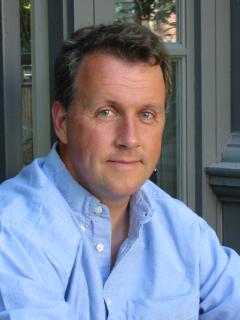In 2009 Paul Graham was introduced on the EconTalk podcast as an essayist, a programmer, an author of the book Hackers and Painters, a programming language designer, and a partner at Y Combinator.
In 2009, according to Paul Graham, Y Combinator (YC) was neither a venture capital firm nor an incubator. In fact, there was not yet a name for what Y Combinator was trying to create.
Instead of raising a large amount of capital to invest into small number of deals, YC was investing a small amount into a relatively large number of companies.
While investing 7 times the volume, and 1/100s the amount in comparison to a traditional venture capital firm, Y Combinator was not aiming to be as successful. Paul Graham (@paulg) predicted there would be a lot of failures, if YC were to be true to its goal. However, he said he would be happy with a ~33% success rate, which meant most of the startups would fail.
Y Combinator standardized a traditionally slow and tedious process by applying batch processing and technology.
While a traditional venture firm was able to invest in ~2 companies per year, per partner, Y Combinator was able to fund dozens of companies, twice a year.
With hundreds, and now thousands of applications each batch, Y Combinator uses an online submission form (no paper or presentation decks) to decide on a small group of applicants to invite for an interview.
At the interview, Y Combinator partners talk to each startup for only 10 minutes, until they decide whether to fund a company or not.
As soon as a team walks in, YC partners dive in with questions. Even though the team tries to make everyone feel at ease, often times the applicants get really nervous when four partners are bombarding them with questions, which only makes it harder for the partners to get all the answers they need.
1. Moore's law has made computers (hardware) effectively free.
2. The internet has made promotion free.
3. Programming languages have gotten more advanced, enabling smaller number of engineers to create a lot more output. Founders no longer need to hire in order to get the first version out.
As a result, it has become significantly cheaper to start a startup, and young and mobile founders are able to move to any city that would offer them a good deal.
VC funds invest large amounts of other people's money, and often are run by money-managers who have to invest in entrepreneurs that look the part.
Angels are often exited startup founders themselves, and invest small amounts of their own money, largely on a gut instinct. Unlike VCs, Angels don't care if their investment does not look "right" to others.
The best new ideas often sound crazy. Google and Facebook, for example, had to first raise money from angels because all the VCs told them "NO."
Launch something as soon as you have enough that even 10 people would use. Watch those people, then building what they need to exist.
Unlike large corporations who run off inertia, "clever and impoverished outsiders" are leaders, sophisticated and cheap, driven by a desire to innovate. Build for them.
At the end of roughly 10 weeks, Y Combinator program culminates with a "Demo Day."
In 2009, Y Combinator batch grew so big that all of the startups could not fit into the building at once; the Demo Day had to be held over a two day period.
At the end of three months, only the dinners end and everything else continues.
During the recession, VCs sensed they could get better deals and got away with owning more shares than they normally would.
People who make stuff have a lot in common with one another, regardless of whatever other differences they might have.
Artists who do no have money do not try to imitate wealth. Instead, they live in a way that is cheap, but not squalid.
Much the same, startups should not try to imitate rich habits of large companies, and should just focus on making their software really good.
In both programming and paining, there are people who are amazingly talented and can produce great work, as long as they know exactly what to do. As soon as you ask those people to come up with something on their own, they get lost.
The best programmers are the ones that can do both both, have ideas and translate their ideas into code.
When given the choice, PG would pick the ones who know what to paint, even if they can't hold the brush, so to speak.
Hackers are makers and they have to constantly fight a desire to just make cool stuff, instead of making what users actually want.
PG saw Facebook and Twitter as the new TV, an addiction that wasted time, ought to be kicked for a better hobby. He suggested it would make sense to avoid them.
Immigrants start a disproportionate number of startups, and startups lead to economic prosperity. Meanwhile, visa issues are the single best way to kill startups. Having an open-door policy would be great for America's economic growth.
If you compared high-school to someone's day job, you'd realize that the workload is pretty easy, it's not really demanding on your time, and you might even be able to do other things while doing your school work.
"If you have to be in prison, at least learn to be a good chess player." - PG.
